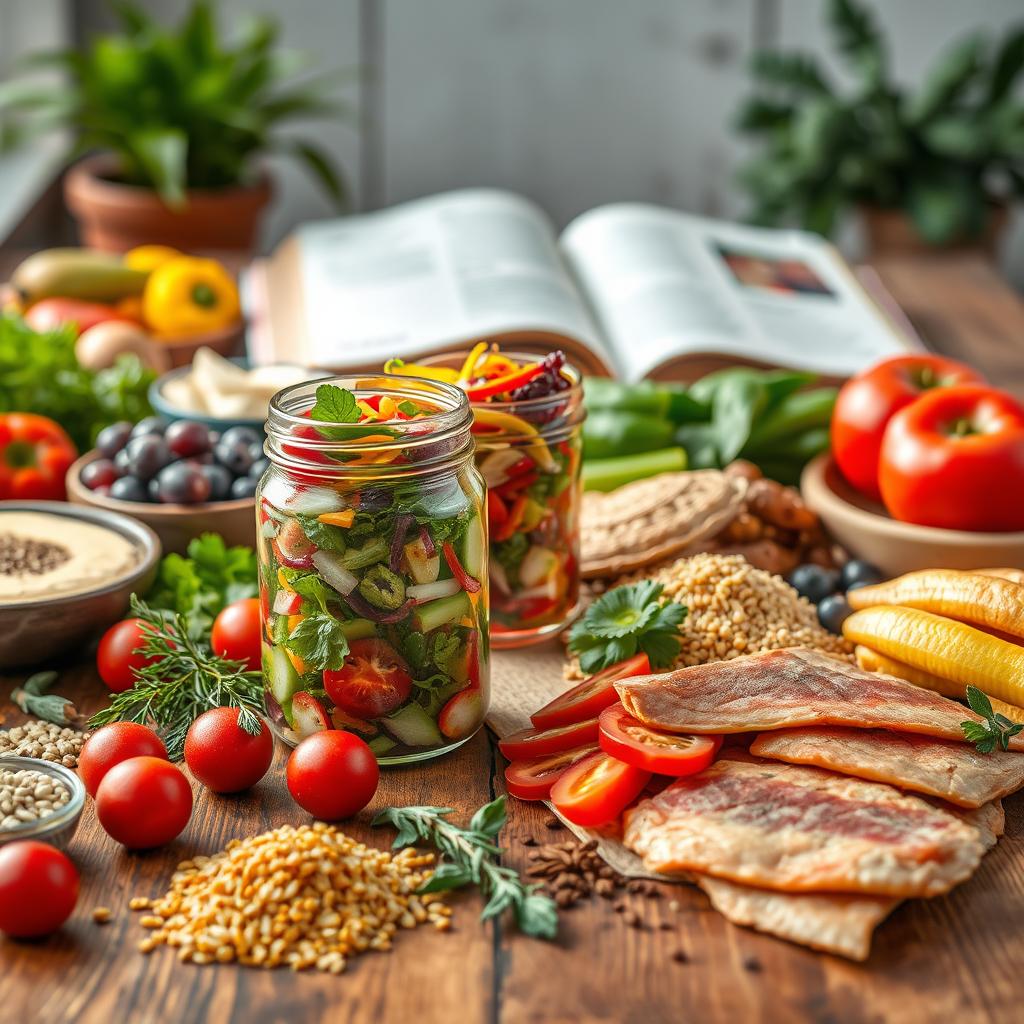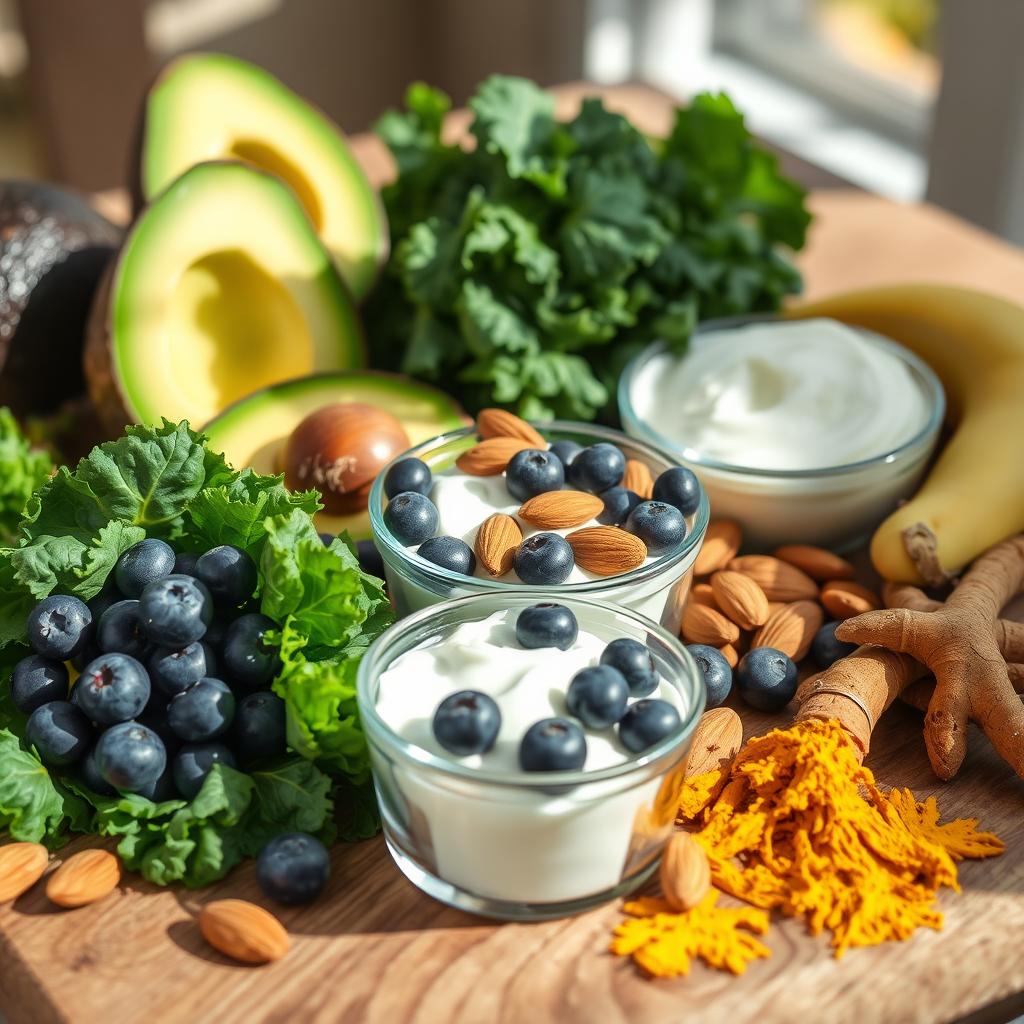Feeling bloated, sluggish, or just “off”? You might be surprised to learn that the key to feeling better could be hiding in your gut. Your digestive system is home to trillions of tiny microorganisms that influence everything from your mood to your immune system. Nurturing this internal ecosystem with the right foods can be transformative. This simple yet effective 7 day gut health diet plan is designed to reduce irritation, boost beneficial bacteria, and get you on the path to feeling your best.
What’s the Big Deal About Gut Health Anyway?
Think of your gut microbiome as a bustling city living inside you. This city is made up of trillions of bacteria, fungi, and other microbes. In a healthy gut, the “good citizen” bacteria are in charge, helping you digest food, produce essential vitamins, and protect you from harmful invaders. They work hard to keep everything running smoothly.
When the “bad citizen” bacteria start to take over, it can lead to an imbalance called dysbiosis. This imbalance is linked to a host of issues, including bloating, gas, constipation, and fatigue. Even things you might not connect to your stomach, like skin problems, brain fog, and a weaker immune system, can be traced back to poor gut health. Following a consistent gut health diet plan is one of the most powerful ways to restore balance and support the good guys.
Building Your Gut Friendly Kitchen: The Core Principles
Before jumping into the daily meals, it’s helpful to understand the ‘why’ behind the food choices in this gut health diet plan. The strategy is simple: add in more of the good stuff while reducing the things that cause irritation. These core principles are the foundation of a sustainable approach to gut wellness.
Principle 1: Feed the Good Guys (Prebiotics)
Your good gut bacteria need to eat, and their favorite food is prebiotics. Prebiotics are specific types of fiber that your body can’t digest, so they travel down to your colon where your gut microbes feast on them. This process helps the good bacteria multiply and thrive. Think of prebiotics as fertilizer for your internal garden.
- Onions & Garlic: These kitchen staples are packed with prebiotic fibers.
- Bananas: Especially slightly underripe bananas, are a great source.
- Oats: A fantastic source of beta glucan fiber.
- Asparagus: A powerhouse of inulin, a type of prebiotic fiber.
- Apples: Contain pectin, which feeds beneficial gut bacteria.
Principle 2: Add More Good Guys (Probiotics)
While prebiotics feed the good bacteria you already have, probiotics are live bacteria that you can add directly to your gut community. Eating probiotic rich foods regularly can help reinforce your population of beneficial microbes. Fermented foods are the best natural sources of probiotics, making them a cornerstone of any effective gut health diet plan.
- Yogurt: Look for “live and active cultures” on the label. Choose plain, unsweetened varieties.
- Kefir: A fermented milk drink that often contains a more diverse range of bacteria than yogurt.
- Sauerkraut: Fermented cabbage. Make sure to buy the refrigerated kind that hasn’t been pasteurized, as heat kills the good bacteria.
- Kimchi: A spicy Korean fermented vegetable dish, typically made from cabbage.
- Kombucha: A fizzy, fermented tea. Be mindful of the sugar content in store bought brands.
Principle 3: Fiber is Your Friend
Beyond prebiotics, general dietary fiber is essential for a healthy digestive system. It helps keep you regular, which is critical for removing waste from your body. A high fiber diet is consistently linked to a more diverse and healthy gut microbiome. Aim to include a wide variety of plant based foods in your gut health diet plan to get a mix of different fiber types.
- Legumes: Lentils, chickpeas, and black beans are fiber superstars.
- Whole Grains: Quinoa, brown rice, and whole wheat bread.
- Berries: Raspberries and blackberries are particularly high in fiber.
- Seeds: Chia seeds and flaxseeds are excellent sources of soluble fiber.
- Leafy Greens: Spinach, kale, and other greens add bulk and nutrients.
Principle 4: Reduce Gut Irritants
Just as important as adding beneficial foods is removing the ones that can harm your gut. Certain foods can promote inflammation, feed the “bad” bacteria, and damage the lining of your gut. A key part of this gut health diet plan is to minimize your intake of these common culprits.
- Ultra Processed Foods: These often contain additives, emulsifiers, and preservatives that can disrupt the gut microbiome.
- Excessive Sugar: Sugar is a primary food source for less desirable bacteria and yeast.
- Artificial Sweeteners: Some studies suggest that sweeteners like aspartame and sucralose can negatively alter gut bacteria.
- Fried Foods: High fat, fried foods can be difficult to digest and may cause discomfort for some people.
Your 7 Day Gut Health Diet Plan
Here is a sample 7 day gut health diet plan to get you started. This plan is a template, so feel free to swap meals based on your preferences and what you have available. The goal is to focus on whole, unprocessed foods and incorporate plenty of fiber, prebiotics, and probiotics. Remember to drink plenty of water throughout the day.
| Day | Breakfast | Lunch | Dinner | Snack |
|---|---|---|---|---|
| Day 1 | Oatmeal made with water or unsweetened almond milk, topped with berries and a sprinkle of chia seeds. | Large salad with mixed greens, grilled chicken, chickpeas, cucumber, and a lemon tahini dressing. | Baked salmon with roasted asparagus and a side of quinoa. | An apple with a handful of almonds. |
| Day 2 | Plain Greek yogurt with sliced banana and a drizzle of honey. | Lentil soup with a slice of whole grain sourdough bread. | Turkey meatballs with zucchini noodles and a simple tomato sauce with garlic and onions. | A small glass of kefir. |
| Day 3 | Smoothie with spinach, half a banana, unsweetened almond milk, and a scoop of protein powder. | Leftover turkey meatballs and zucchini noodles. | Chicken and vegetable stir fry with brown rice. Add a side of kimchi. | A pear. |
| Day 4 | Scrambled eggs with sautéed spinach and mushrooms. | Quinoa bowl with black beans, corn, avocado, and a lime vinaigrette. | Sheet pan dinner with roasted chicken sausage, broccoli, and sweet potatoes. | A handful of walnuts. |
| Day 5 | Overnight oats made with kefir, topped with raspberries and flaxseeds. | Leftover sheet pan dinner. | Large mixed green salad with baked tofu, shredded carrots, and a side of sauerkraut. | Baby carrots with hummus. |
| Day 6 | Plain Greek yogurt with a mix of berries. | Tuna salad (made with yogurt instead of mayo) served in lettuce cups. | Black bean burgers on whole wheat buns with a side salad. | A small glass of kombucha. |
| Day 7 | Scrambled eggs with a side of avocado and sliced tomatoes. | Leftover black bean burgers. | Simple roasted chicken with a side of steamed green beans and roasted garlic mashed cauliflower. | A handful of mixed berries. |
This meal schedule is a great starting point for anyone looking to implement a new gut health diet plan. Remember that consistency is more important than perfection.
Beyond the Plate: Other Keys to a Happy Gut
While food is the most significant factor, a truly holistic gut health diet plan also considers other lifestyle habits that impact your microbiome. These small changes can amplify the benefits of your new way of eating.
Stay Hydrated
Water is fundamental for good digestion. It helps break down food and transport nutrients. Dehydration can lead to constipation, which allows waste to sit in your colon for too long, potentially disrupting the balance of your gut bacteria. Aim for at least 8 glasses of water per day.
Manage Stress
Have you ever had a “gut feeling” or felt “butterflies” in your stomach? That’s the gut brain axis at work. Your brain and your gut are in constant communication. Chronic stress can negatively impact this connection, affecting gut motility and microbial balance. Incorporating stress reducing activities like meditation, deep breathing, yoga, or even a simple walk in nature can have a profound effect on your digestive health.
Prioritize Sleep
Your gut has its own circadian rhythm, just like you do. Poor sleep can disrupt this rhythm and negatively alter your microbiome. Aiming for 7 9 hours of quality sleep per night is an important part of a comprehensive gut health diet plan, as it gives your entire system, including your gut, time to rest and repair.
Move Your Body
Regular, moderate exercise is fantastic for your gut. It can stimulate digestion, reduce stress, and may even increase the diversity of your gut bacteria. You don’t need to run a marathon, a brisk 30 minute walk most days of the week is enough to make a positive impact.
Frequently Asked Questions About a Gut Health Diet Plan
Starting a new eating plan can bring up a lot of questions. Here are answers to some of the most common queries about embarking on a gut health diet plan.
How long does it take for this diet plan to work?
Everyone is different, but many people start to notice positive changes like reduced bloating and more regular digestion within the first week. Significant changes to the gut microbiome can take several weeks to a few months of consistent effort. The key is to view this gut health diet plan not as a quick fix, but as a long term lifestyle adjustment.
What are the signs my gut health is improving?
Positive signs include more regular and comfortable bowel movements, less bloating and gas, increased energy levels, clearer skin, and even an improved mood. You might just start to feel generally better and more vibrant. These are all indicators that your gut health diet plan is working.
Can I drink coffee on a gut health diet plan?
This depends on the individual. For some, coffee can stimulate digestion in a positive way. For others, it can be an irritant, especially on an empty stomach. If you choose to drink coffee, try to have it with food and pay attention to how you feel. If you experience discomfort, you may want to reduce your intake or eliminate it for a while.
What are the 3 worst foods for your gut?
While it varies from person to person, the three most common culprits that can disrupt gut health are:
- Ultra processed foods: They are low in fiber and high in sugar, unhealthy fats, and artificial additives that can harm your microbiome.
- Added sugars: Found in soda, candy, and many packaged foods, sugar feeds the less beneficial bacteria in your gut.
- Artificial sweeteners: Certain non nutritive sweeteners have been shown to alter the composition of gut bacteria in some people.
Focusing on whole foods is the best strategy in any gut health diet plan.
Conclusion
Improving your gut health is one of the most impactful things you can do for your overall well being. By focusing on a diet rich in whole foods, fiber, prebiotics, and probiotics, you can nourish your internal ecosystem and reap the rewards. This 7 day gut health diet plan provides a clear roadmap to get you started on this journey. Remember to listen to your body, stay consistent, and incorporate other healthy habits like managing stress and getting enough sleep. A happy gut is within your reach, and it starts with the very next meal you eat.





